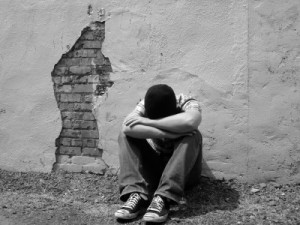Drug withdrawal is your body’s way of coping with the absence of a chemical that you’ve come to depend on. If you’ve gotten to the point that you need pain medication, tranquilizers or street drugs to feel physically or psychologically normal, you will experience noticeable symptoms if you try to quit or cut down on your usage. With some drugs, withdrawal feels like a bad case of the flu. You might feel sick to your stomach, achy and cold. With other drugs, withdrawal causes severe agitation, tremors and anxiety.
While these symptoms usually aren’t fatal, they can be very hard to tolerate. In fact, withdrawal drives a lot of addicts back to using, even if they’re surrounded by evidence that drugs are destroying their lives. The best way to get past withdrawal is to go through the process under medical supervision at a facility that specializes in addiction treatment.
What Causes Drug Withdrawal?
There are a number of drugs that can cause severe side effects when you stop using the substance. According to the journal Substance Abuse and Critical Care, the following drugs are known to cause withdrawal symptoms:
- Alcohol
- Opioids
- Benzodiazepines
- Cocaine
- Marijuana
 You know that abusing drugs is harmful to your brain and body. So why do you feel so sick when you make the positive decision to stop using and protect your health?
You know that abusing drugs is harmful to your brain and body. So why do you feel so sick when you make the positive decision to stop using and protect your health?
As drugs are eliminated from your body — a process called detoxification — your system has to readjust. Opioids, benzodiazepines, and stimulants like cocaine or methamphetamine alter the way your brain processes certain neurotransmitters, chemicals that affect your sense of well-being and emotional stability. Neurotransmitters like dopamine and serotonin affect your moods, your emotions and the activities of your central nervous system. Stimulants have the power to elevate your mood and give you a burst of energy, while depressants like alcohol or barbiturates slow down your central nervous system and make you feel relaxed.
When those drugs are no longer available, your body will react by making you feel sick and by causing intense cravings for the drug. In the early or acute stage of withdrawal, you may experience certain physical symptoms:
- Nausea or vomiting
- Diarrhea
- Sweating
- Runny nose and watery eyes
- Shaking
- Muscle or bone pain
- Rapid heart rate
- Chills
- Goosebumps
Drug withdrawal also causes emotional or psychological side effects:
- Anxiety
- Depression
- Irritability
- Difficulty concentrating
- Anhedonia (a lack of pleasure in your normal activities)
- Problems with concentration
- Sleep disturbances
Once you’ve become chemically dependent on a drug, your brain and body rely on the substance to feel good. When the drugs are suddenly withdrawn, your brain, nerves and muscles need time to get used to the absence of these substances. Withdrawal and detox are a necessary part of the process of recovering from drug dependence, but with the right professional support, you can get through detoxification with minimal side effects.
How Long Does Withdrawal Last?

Withdrawal may start within six to 12 hours after you stop using a drug and can last from a few days to several weeks, depending on a number of important factors:
- The type of drug you’ve been taking
- The length of time you’ve been dependent on the drug
- The amount of the drug you’ve been using
- Whether you’ve been taking other drugs at the same time
- Whether you have other physical or psychological health issues that might make withdrawal symptoms worse
The acute withdrawal phase typically lasts for a few days to one or two weeks. But after physical symptoms like nausea, shakes and muscle pain subside, users may continue to experience anxiety, restlessness, mood swings and strong cravings for weeks or even months after they stop using.These lingering symptoms are sometimes known as post acute withdrawal syndrome, or PAWS. With hallucinogenic drugs, some users may experience psychotic delusions for months after they’ve discontinued the drug.
A study published in Neuropsychobiology found that a significant percentage of opiate users continue to experience cravings for their drug of choice after the acute withdrawal phase. Anhedonia, or the inability to feel pleasure in the activities of everyday life, was found to be another common side effect of protracted withdrawal from opiates.
Is Withdrawal Dangerous?
In most cases, drug withdrawal does not pose a serious risk to the user’s health. Withdrawal from heroin, cocaine, meth or oxycodone can be so unpleasant that you truly believe you won’t survive it, but in fact, it usually isn’t fatal. However, there are a few cases where withdrawal can be life-threatening:
- Alcohol withdrawal. Heavy alcohol users may experience seizures, fever, severe dehydration, delirium and other symptoms that can be potentially fatal when they withdraw from alcohol
- Benzodiazepine withdrawal. Long-term users of drugs in this class, such as lorazepam or clonazepam, may have seizures during the withdrawal period
- Co-occurring psychiatric disorders. Drug users with a history of psychosis, severe depression, anxiety or suicidal ideation have a higher risk of adverse effects from drug withdrawal
- Co-existing health conditions. Medical conditions like heart disease or diabetes increase the risk of problems during withdrawal. Pregnancy also poses special challenges during this phase.
- Previous attempts to get clean. Users who have tried to quit in the past without medical support may have complications in the future when they try to withdraw from drugs independently.
According to the National Institutes of Health, resuming drug use is one of the biggest risks of withdrawal. Even if you’re mentally dedicated to leading a clean and sober life, the intensity of the cravings and severity of withdrawal symptoms can be overwhelming. When you’re thinking about quitting, it’s important not to underestimate the power of drugs to undermine your best resolutions.
There’s no way to tell for certain how an individual will react to drug withdrawal. The only way to feel confident that you can make it through this difficult time is to reach out for help from addiction specialists who understand what you’re going through. Withdrawing from drugs may be the hardest thing you’ve ever done, but the rewards of a clean and sober life will continue to pay off for years to come.
How Can I Cope With Withdrawal?
Withdrawal is only the first step in a long journey to recovery. If your goal is to stay clean and rebuild a healthier life after withdrawal, your best option is to enter a comprehensive drug rehab program, where you can get the help you need from doctors, therapists and counselors to reach your goals. When you go through withdrawal as part of an addiction treatment program, you can benefit from services like the following:
- A monitored detoxification program
- One-on-one therapy with addiction counselors
- Group therapy with other users who are facing the same challenges
- Medications to relieve withdrawal symptoms and help you maintain your sobriety after detox
- Family education and counseling
- 12-step meetings
- Holistic therapies like massage, acupuncture or hypnotherapy
During the withdrawal phase, it might seem that you’ll never make it through this tough stage. But in fact, many users just like yourself have survived withdrawal and have gone on to create stable, drug-free lives. If you’re looking for a long-lasting solution to the devastating problem of drug abuse, rehabilitation at a qualified treatment facility is the answer.
Our clients at Axis Residential Treatment can take advantage of our innovative approach to rehab and our variety of recovery tools. We provide the support you need as you evolve through the steps of rehabilitation. When you’re ready to seek help, we’re here to answer your questions and talk to you about our individualized treatment plans.


